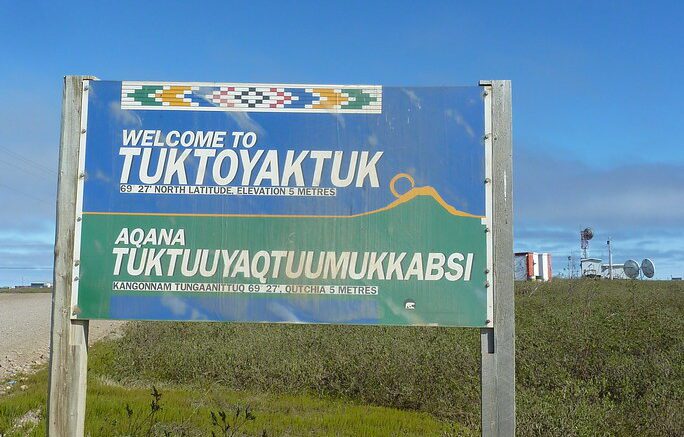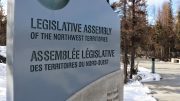In an effort to support Tuktoyaktuk’s fight against climate change, the federal government is providing the community with $5.5 million in funding.
Some of this money can go towards relocation efforts for residents whose homes are at risk from eroding shorelines caused by rising temperatures.
However, Erwin Elias, mayor of Tuktoyaktuk says relocation is optional.
“The way we’re approaching it, is that we’re not forcing anyone to move,” he says. “People have an option to move. At the end of the day it’s the people that live in their homes that have their own choice.”
Some residents have already moved, something Tuktoyaktuk Councillor Shawn Lundrigan says was difficult a process, but one the community members understood.
“It’s their home, it’s where they’ve been for 50, 60, 70 years,” he says. “At first it was kind of tough, but they accepted it and moved on.”
Around $3.6 million will be allocated to specifically support the community’s coastal erosion mitigation, says Daniel Vandal, minister of Northern Affairs.
“The impact of climate change is being felt all over the world,” Vandal tells CKLB in an interview Friday afternoon. “It’s even worse in the North, where climate change is taking place three times quicker than in the South.”
Elias says this money will go towards creating a research proposal plan, involving engineering, which will then be sent to the federal government so the community can receive additional funding to initiate the plan.
Elias says the proposal plan is in its final stages, but requires more on the ground engineering research — both on the Tuktoyaktuk peninsula and the island in the harbour.
Once complete, the engineers will create a model plan, which will then be presented to the community, who will have the final say on what comes next. Elias says he is hoping to have this complete sometime next year.
“There’s a whole process to it,” he says of receiving funding. “Once we are done with this engineering, we will be able to put a proposal together.”
Going forward, Vandal says the federal government commits to continue providing funding to the community of Tuktoyaktuk in its battle against climate change.
Lundrigan and Elias say the money is important and they appreciate the efforts of the federal government.
In the meantime, the community will continue to do what it can to fight against the eroding shoreline.
“It’s good that we’re finally getting some attention in our plight against climate change, which was not caused by us up here,” Lundrigan says. “But we’re paying the price.”
The funding is being provided by the Crown-Indigenous Relations and Northern Affairs Canada’s Climate Change Programs.
Luke Carroll is a journalist originally from Brockville, Ont. He has previously worked as a reporter and editor in Ottawa, Halifax and New Brunswick. Luke is a graduate of Carleton University's bachelor of journalism program. If you have a story idea, feel free to send him an email at luke.carroll@cklbradio.com









